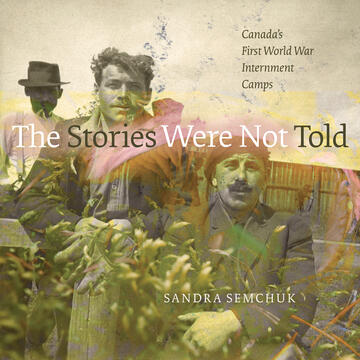
The Stories Were Not Told
Canada’s First World War Internment Camps
Description
From 1914 to 1920, thousands of men who had immigrated to Canada from the Austro-Hungarian Empire, Germany, and the Ottoman Empire were unjustly imprisoned as “enemy aliens,” some with their families. Many communities in Canada where internees originated do not know these stories of Ukrainians, Germans, Bulgarians, Croatians, Czechs, Hungarians, Italians, Jews, Alevi Kurds, Armenians, Ottoman Turks, Poles, Romanians, Russians, Serbians, Slovaks, and Slovenes, amongst others. While most internees were Ukrainians, almost all were civilians.
The Stories Were Not Told presents this largely unrecognized event through photography, cultural theory, and personal testimony, including stories told at last by internees and their descendants. Semchuk describes how lives and society have been shaped by acts of legislated discrimination and how to move toward greater reconciliation, remembrance, and healing. This is necessary reading for anyone seeking to understand the cross-cultural and intergenerational consequences of Canada’s first national internment operations.
Reviews
"The book is a melding of Semchuk’s personal journey, visual art, narrative, and recall.... The Stories Were Not Told is an intriguing composition, stimulating thought and offering an artistic integrative approach to history and culture.... This grounding of the human experience through a variety of approaches reveals more than history per se." [Full review at https://ormsbyreview.com/2020/05/13/823-regular-hinther-mochoruk-semchuk-black-internment/]
- Keith Regular, The Ormsby Review, May 13, 2020
"To dwell in this book's pages is to experience dismay, sadness and sobering revelation. Finally though, a century later, internment stories are being told, making our nation's history more authentic."
- Steven Ross